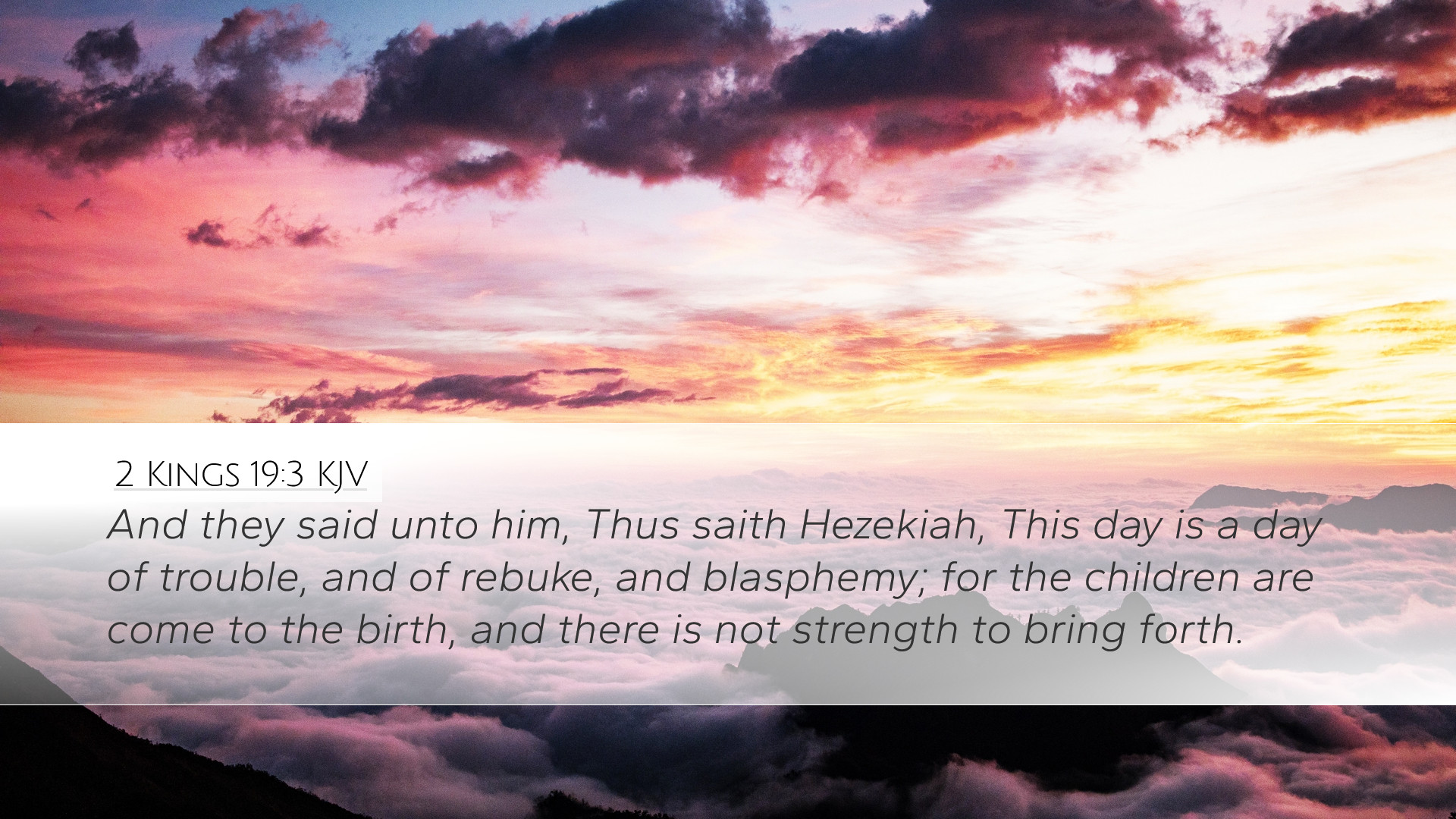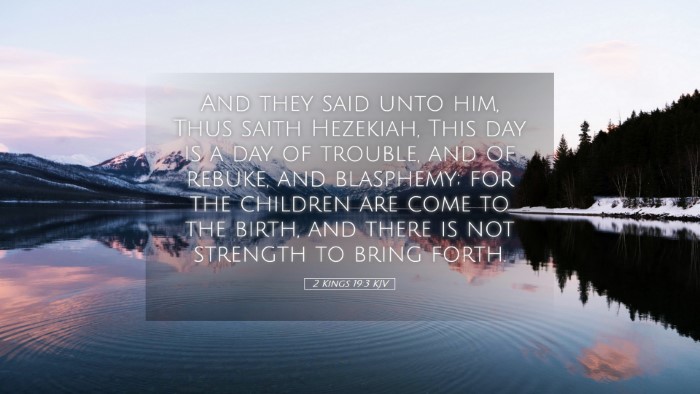Bible Commentary on 2 Kings 19:3
Verse Context: 2 Kings 19:3 states, "But they said to him, 'This is what Hezekiah says: This day is a day of distress, rebuke, and disgrace; as when children come to the point of birth, and there is no strength to deliver them.'" This verse captures a moment of deep distress for King Hezekiah and the people of Judah as they face a grave threat from the Assyrian empire.
Historical and Theological Significance
The context of 2 Kings 19 involves the Assyrian king Sennacherib's siege of Jerusalem. The verse reveals not only the physical condition of God’s people but also alludes to a spiritual warfare that ensues when the enemies of God lay siege to His people. The imagery of childbirth used here poignantly highlights the intensity of their predicament, emphasizing that they are about to give birth to a new dawn, but feel utterly helpless to do so.
Insights from Matthew Henry
Matthew Henry interprets this verse with a pastoral heart. He notes that Hezekiah’s words signal a time of crisis that is also redemptive. The king acknowledges the seriousness of their situation—akin to the throes of labor without the strength to deliver. Henry argues that in our spiritual journeys, we often encounter "days of distress." Just as a woman cannot avoid the pain of childbirth, believers cannot escape trials. Yet, these moments pave the way for divine intervention.
Insights from Albert Barnes
Albert Barnes places emphasis on the metaphor of childbirth. He states that the day is marked by "rebuke"—a premium placed on personal and corporate accountability before God. Barnes highlights that such seasons of distress serve a profound purpose: they can lead us back to self-examination and renewed dependency upon God. His commentary encourages believers to view their trials as opportunities to recognize their limitations and to seek divine assistance earnestly.
Insights from Adam Clarke
Adam Clarke’s commentary adds depth by interpreting the "rebuke" mentioned in the verse as an admonition from God, which serves to chastise His people. Clarke suggests that Hezekiah’s plea reflects not just physical distress, but a spiritual recognition of their sins and failures. He argues that this acknowledgment is the first step towards repentance and restoration. According to Clarke, it is essential for believers to confront their weaknesses openly, as this honesty becomes a fertile ground for seeking God’s mercy and restoration.
Theological Implications
This verse and its commentaries invite pastors and theologians to reflect on the nature of divine chastisement and the human experience of distress. It encourages a compassionate pastoral approach towards those facing trials, recognizing such moments as opportunities for deeper faith and reliance on God. The interplay between human weakness and divine strength is a recurring theme in scripture, and here it reaches a poignant climax in Hezekiah's heartfelt expression.
Application for Believers
- Embracing Distress: Believers are reminded that distress does not equate to abandonment by God. Rather, it can be a catalyst for spiritual awakening.
- Seeking God’s Help: Much like Hezekiah, believers should turn to God in moments of crisis, seeking His wisdom and strength.
- The Role of Confession: Recognizing one's sins and failures is crucial for spiritual growth. Acknowledgment paves the way for God's grace and healing.
- Understanding Trials as Temporary: Trials are often transient, and God’s faithfulness remains constant. This verse assures believers that deliverance is possible.
Conclusion
In conclusion, 2 Kings 19:3 serves as a profound reminder of the days of distress that every believer encounters. The insights from the commentaries of Matthew Henry, Albert Barnes, and Adam Clarke underline the importance of recognizing our limitations, confessing our shortcomings, and leaning on God's strength during times of trouble. This verse is not just a historical account, but a timeless reflection on the human experience of suffering and the unshakeable faithfulness of God in delivering His people.


